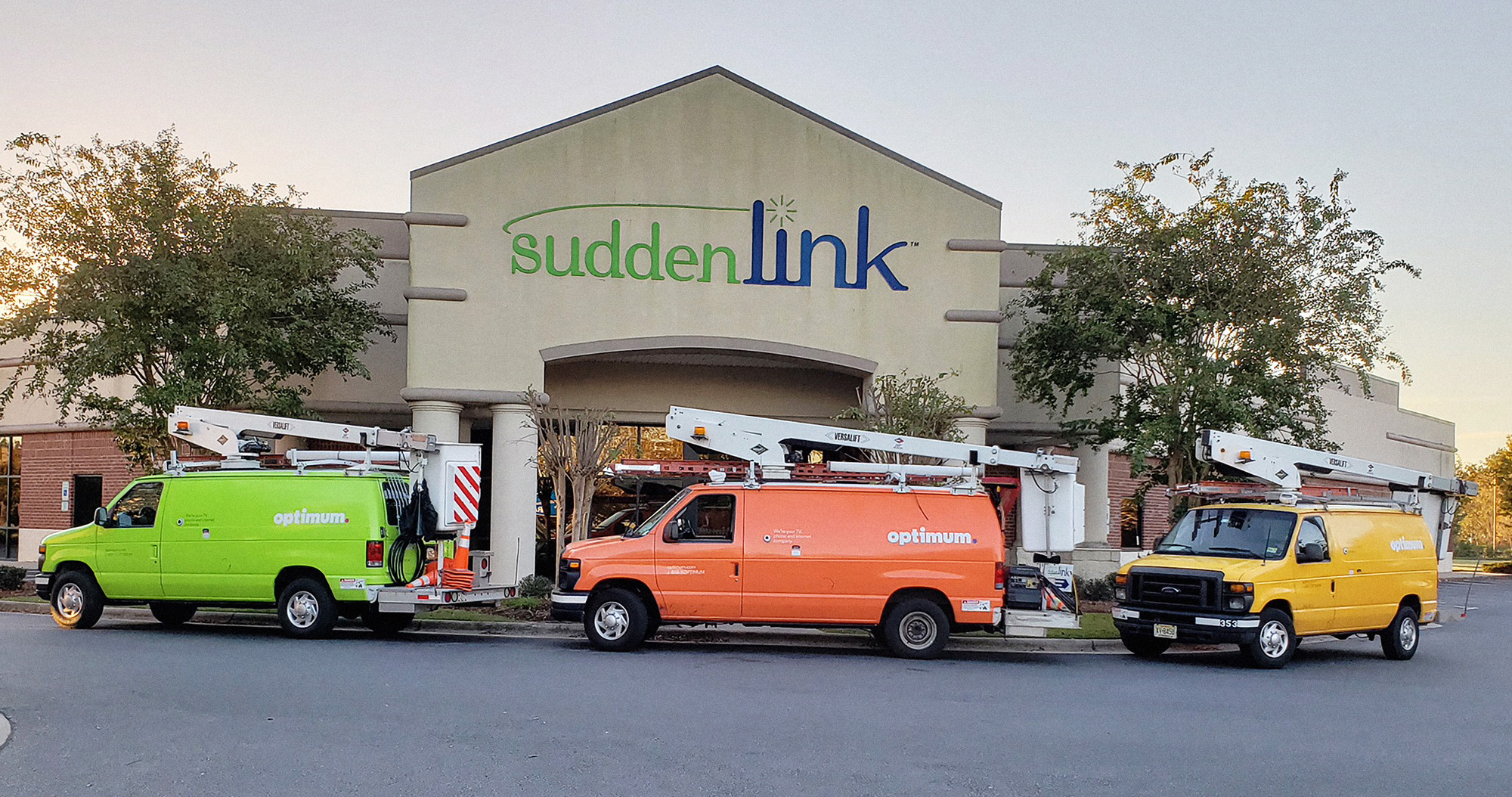Suddenlink May Be Sold, But Not For $20 Billion, Moffett Says
Private equity would be interested at 10-to-12 times cash flow multiples

The smarter way to stay on top of the multichannel video marketplace. Sign up below.
You are now subscribed
Your newsletter sign-up was successful
Altice USA stock continued to rise on Friday, albeit at a much slower pace than the day before, as investors started to realize that if a sale of its Suddenlink unit were to happen, it would likely be at a more reasonable price than the $20 billion that had been previously speculated.
Altice USA shares spiked as high as $13.17 each on Thursday, up 43%, after Bloomberg News said the company had engaged investment banker Goldman Sachs to look for potential buyers of its Suddenlink systems in the Midwest, South and West. According to the Bloomberg report, buyers could pay as much as $20 billion for the unit. The stock closed at $11.24 each, up 22.5% on July 21 and rose another 2% in Friday afternoon trading.
A $20 billion price tag would imply the deal could be done at a 14 times multiple of cash flow -- the prevailing metric for cable deals -- or about twice that of earlier deals. Suddenlink has about 1.8 million subscribers and passes about 3.9 million homes, which would make it the fifth largest cable operator in the country on a standalone basis.
In a research note, MoffettNathanson senior analyst Craig Moffett wrote that while a Suddenlink sale would seem to contradict Altice USA’s previous direction -- it has pumped billions of dollars into building out its fiber network and has said Suddenlink was its clearest growth engine -- a deal could be done. Moffett noted that there has been substantial interest in cable assets from private equity funds recently -- Stonepeak Infrastructure Partners, TPG and Macquarie Capital all have done recent deals -- as well as from smaller strategic players. But paying twice the prevailing rate for cable operations that will still need to be upgraded may be a tough row for Altice USA to hoe.
Moffett also questioned Bloomberg's $1.3 billion cash flow estimate for Suddenlink, adding that was the company's trailing 12-month EBITDA in 2018. It likely has risen since then -- and if it hasn't Suddenlink has more serious problems -- and Moffett predicted that today it is more likely in the $1.6 billion range. That would value a $20 billion deal at about 12.5 times cash flow, still high, but more palatable to a potential suitor.
As far as potential buyers Moffett wrote that the two largest operators -- Comcast and Charter Communications -- have held back on system purchases because of regulatory concerns. That leaves Cable One as the most likely strategic player interested in Suddenlink, because it is around the same size.
But he added that Cable One would likely have to issue equity in a deal, and Altice USA probably has little interest in owning another cable stock. While Cable One has issued shares to the public and used the proceeds for deals in the past, the size of a Suddenlink deal would make that infeasible.
The smarter way to stay on top of the multichannel video marketplace. Sign up below.
“To be sure, none of this means that Cable One couldn’t be a potential buyer. It is simply to say that it wouldn’t be easy,” Moffett wrote.
That leaves private equity players. And though there haven’t been any significant PE cable deals this year, meaning the desire to pay high prices for assets may have waned, Moffett noted that there should be both significant amounts of capital available and a high degree of interest in Suddenlink.
“In short, then, while we don’t expect the two largest cable operators to be active buyers, we nevertheless believe that Altice could mount a robust auction process, and that they could likely be able to attract a fair price,” Moffett wrote. “It’s just not likely to be a price comparable to what they might have gotten nine to twelve months ago.” ■
Mike Farrell is senior content producer, finance for Multichannel News/B+C, covering finance, operations and M&A at cable operators and networks across the industry. He joined Multichannel News in September 1998 and has written about major deals and top players in the business ever since. He also writes the On The Money blog, offering deeper dives into a wide variety of topics including, retransmission consent, regional sports networks,and streaming video. In 2015 he won the Jesse H. Neal Award for Best Profile, an in-depth look at the Syfy Network’s Sharknado franchise and its impact on the industry.

